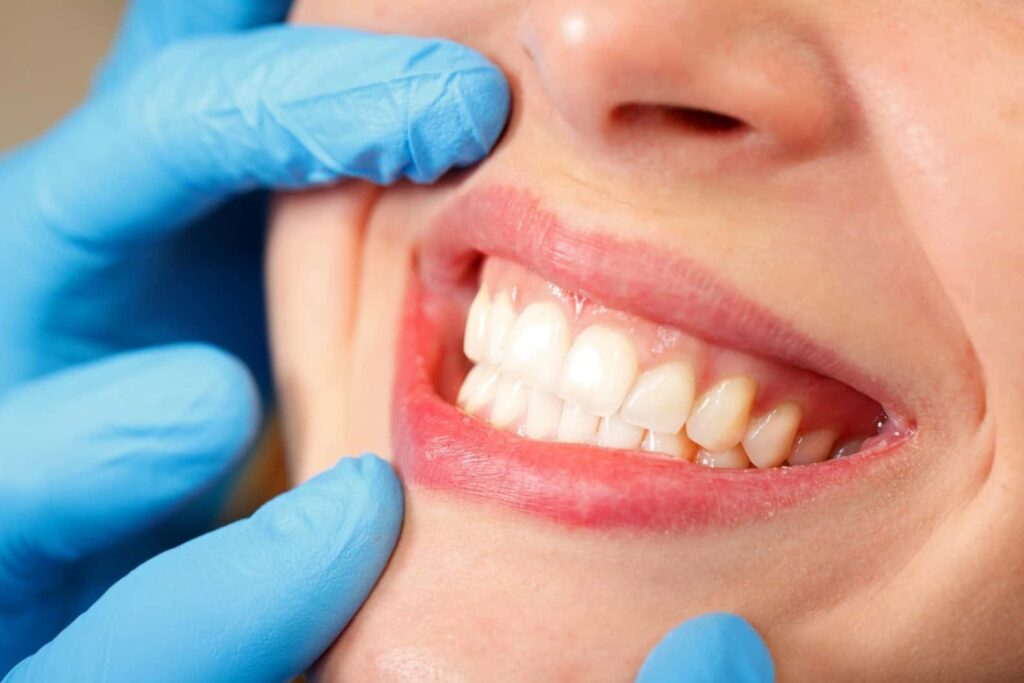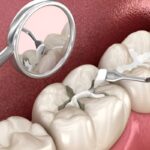What is an Oral Cancer Screening?
Oral cancers occur in the oral cavity and can affect areas such as the lips, tongue and other inner surfaces of the mouth, including the throat. It is a life-threatening condition that should be diagnosed and treated early-on. Oral cancer screenings near you are included in regular checkups which examine the mouth for potential signs or symptoms of oral cancer. These are typically conducted by a Dental clinic in North kildonan during routine dental visits, which can help treat any oral cancers at their earliest stages.
>The oral cancer screening process consists of both visual and tactical screening. The oral cavity, face, lips and neck are closely examined by the Winnipeg dentist, for any bumps, swellings, patches, change of color or any other abnormalities. During the tactical exam at the dental clinic in Winnipeg, the dentist may touch and put pressure on some areas in and around the mouth. The throat area will be examined by asking you to swallow, while the doctor observes the surrounding tissue and muscles.
Why Oral Cancer Screenings Are Done?
Similar to any other cancer, oral cancers can be prevented by diagnosis at an early stage. The earliest stage of cancer, before the visible symptoms have occurred, is the easiest stage to treat or remove the cancer cells or lesions, before they develop and occupy a larger area in the mouth.
Oral cancer screenings are particularly beneficial for those who are at higher risk of getting oral cancer. These high-risk individuals include heavy smokers or tobacco users, heavy drinkers and those who have previously had any other kind of cancer diagnosis.
What are the risks and limitations associated with Oral Cancer Screenings?
Just like many other kinds of cancer screenings, Oral Cancer Screenings come with a few limitations as well. Firstly, the current methods of oral cancer screenings still do not have the ability to detect every kind of oral cancer.
Even with a possible diagnosis of cancer, oral cancer screenings should be followed by additional testing by a specialist, to give a complete and final diagnosis. For example, although a visual and tactical exam can detect a mouth sore, it is not always possible to definitively know whether it is a symptom of oral cancer or something else completely. At our Winnipeg dental clinic, the final determination of an oral cancer screening is done after a proper biopsy.
How to Prepare for an Oral Cancer Screening?
Preparing for an oral cancer screening is not different than preparation for your regular dental visit. More often than not, it is done by your dentist in Winnipeg, during your routine checkup, without the need for a special appointment. You can expect a more thorough examination of your oral cavity, the throat and the surrounding area of your mouth by your Winnipeg dentist. After the initial visual examinations, they will take you through a tactical examination by feeling the tissues and muscles with a gloved hand in order to check for any abnormalities in the tissues surrounding your mouth.
If you are wearing removable dentures, your dentist will ask you to remove them before the exam. This is to properly examine the surface area underneath the dentures. If your dentist has suspicions of early-onset oral cancer, they will be more thorough with their examinations which include the use of special dyes and lights. They may also take tissue samples from specific areas for additional testing.
What can you do to prevent Oral Cancer?
There is no definite way to fully prevent oral cancers, but there are good oral hygiene habits that you can practice in order to reduce the risk of developing oral health issues. Smoking and consuming tobacco products are one of the most common causes of oral cancers, which need to be stopped. Especially if you have been using them for a long time. Heavy drinking can also increase the risk. Healthy eating habits, practicing good oral hygiene and having regular routine checkups at a Winnipeg dental clinic can help reduce the risk of developing oral cancer.






